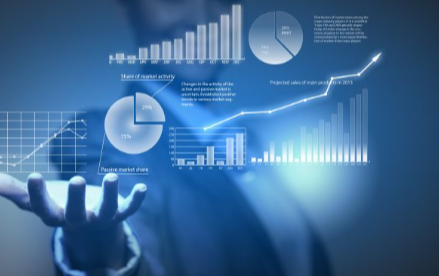The Role of Data Science in Predictive Analytics

Data science is integral to predictive analytics, transforming historical data into actionable insights. By employing statistical modeling and machine learning, data scientists uncover patterns that inform decision-making. This process enhances the precision of forecasts, benefiting various industries. However, the evolving landscape of data science raises questions about its future impact and potential limitations. Exploring these dimensions reveals critical considerations for organizations seeking to leverage predictive analytics effectively.
Understanding Predictive Analytics
Predictive analytics represents a transformative approach in the realm of data science, enabling organizations to anticipate future events based on historical data patterns.
By employing statistical modeling, businesses can enhance data interpretation, transforming raw information into actionable insights.
This capability empowers decision-makers to navigate uncertainty, fostering a culture of informed choices that promote autonomy and encourage innovative strategies in a rapidly evolving landscape.
Key Techniques in Data Science
Data science encompasses a variety of techniques that are integral to the practice of predictive analytics. Among these, feature selection plays a crucial role in identifying the most relevant variables, enhancing model performance.
Additionally, model evaluation techniques ensure that predictive models are rigorously assessed for accuracy and reliability, ultimately empowering organizations to make informed decisions based on data-driven insights.
Applications of Predictive Analytics Across Industries
As businesses strive to enhance decision-making processes, the applications of predictive analytics have emerged as vital tools across various industries.
In healthcare optimization, predictive analytics aids in patient care improvements and resource management.
Similarly, in finance, it facilitates accurate financial forecasting, enabling organizations to anticipate market trends and mitigate risks.
These applications underscore the transformative potential of predictive analytics in diverse sectors.
Future Trends in Data Science and Predictive Analytics
Emerging technologies and methodologies are poised to reshape the landscape of data science and predictive analytics in the coming years.
Machine learning advancements will enhance predictive accuracy, while the integration of ethical considerations will guide responsible data use.
This dual focus on innovation and morality will empower organizations, fostering a future where insights drive decisions without compromising individual rights or societal values.
Conclusion
In conclusion, the integration of data science in predictive analytics profoundly transforms decision-making processes across various sectors. By harnessing historical data through sophisticated modeling techniques, organizations can anticipate trends with remarkable accuracy. As industries increasingly rely on these insights, one must ponder: how will the continued evolution of data science shape our understanding of future possibilities? Ultimately, this synergy not only drives innovation but also empowers businesses to operate with greater efficiency and foresight.





